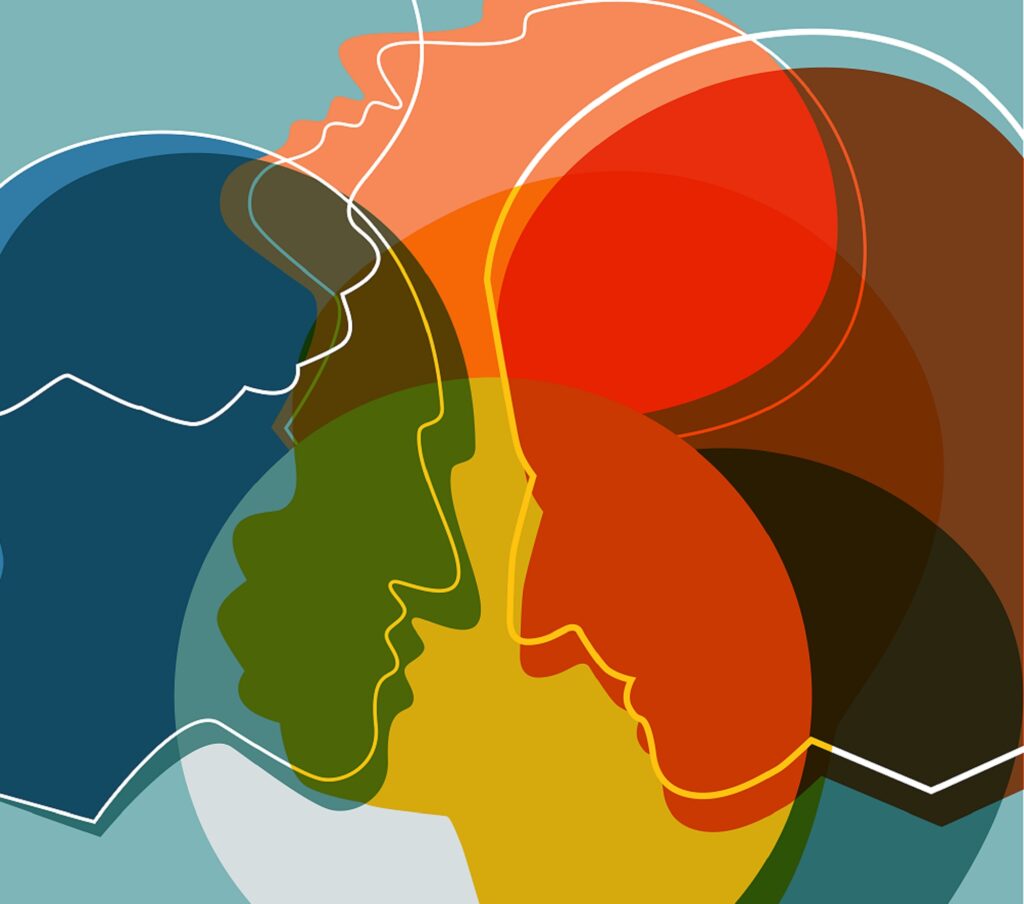This was first published in the print edition of Manushi journal, Issue no. 152 of 2006.
I am the father of a schizophrenic woman who is suffering from the disease since 1990. It was in that year that I noticed for the first time that my daughter could not concentrate on her studies. She also started having problems with her school friends. Not knowing why she was behaving that way, both my wife and I urged that she should pay more attention to her studies. For some time everything seemed to be going on normally in the household. Then in December of the following year, we took her to a psychiatrist who, after a detailed examination, prescribed some medicine and advised us to ensure that the girl was not subjected to any pressure. Unfortunately for us the doctor did not warn us that the disease might take a serious turn, and perhaps she did not know that in cases involving teenagers, more than the drug ECT, family therapy is of utmost importance. She failed to advise us to approach the National Institute of Mental Health and Neurological Sciences (NIMHANS) where alone this therapy was available in those days. This serious lapse on the part of the doctor proved to be the ruin of a youngster’s life and that of our whole family.

In July 1992 the illness blew up leading to an attempted suicide. Since then my daughter is undergoing treatment and has been put on all the known drugs, including ECT, CPZ, CBZ, Haloperedol, Clozapine, Rispiridon and Aripiprazol. With these drugs not even the symptomatic problems of the patient are taken care of. My daughter remained sick throughout her adolescence, her education was disrupted and so also the development of her personality. With the loss of her learning ability, her inter-personal communication skills are now almost zero. And with no worthwhile help coming from the Government or other agencies, we, the parents of this only child are finding it extremely difficult to cope with the responsibility of caring for a patient who needs constant help and monitoring. We have gone through a virtual hell all these years and the family has been wrecked mentally, physically as well as financially.
It pains us no end when even sensible people in our society react to a mental patient in delirium thus: “Maro ek do thappad, pagal sidha ho jaega” (Give him a slap or two and the insane will be all right). Since they do not ordinarily die from their illness, nor is mental illness contagious, nor is their disability physically visible, mental patients are being systematically and continuously ignored and denied the social rights they deserve. Therefore, along with a change in mindset, there is a desperate need for reform in the treatment of the mentally ill in our country, especially those with schizophrenia.
In spite of Government claims that “excellent treatment is now available. Modern medicines have revolutionised the treatment of mental illness. Schizophrenia is curable,” and so on, it is estimated that there are at least 30 lakh schizophrenics in India who are neither cured nor are they able to lead a normal life, even with the support of the so-called excellent treatment which has now been made available to them. Perhaps the Government thinks that mental health is an unnecessary item of expenditure. It is a pity that in line with the thinking of some worthy psychiatrists and medical experts the Government has come to regard schizophrenia only as severe and serious as hypertension or diabetes, which also require treatment all through one’s life. So there are no functioning facilities for rehabilitation either. There are also no social benefits available. Substandard medicines are freely sold and there is no credible independent system for clinical trials of medicines for schizophrenia in India.
Although the hype about Clozapine, as the first reports indicated, has somewhat abated, these reports have now been replaced with the despairing outcry from affected families: “Who will take care of my patient after I die?” The number of families covered by self-help groups is so insignificant that it barely exceeds 500. Currently, there is no meaningful compensatory relief available for families caring for mentally ill members. The awful communication gap among these families, and the unsupportive attitude of the media have served as an ideal sanctuary for fooling, mauling, financially milking and depriving mental patients and their families.
Only on specific occasions, such as the World Mental Health Day, the Indian newspapers carry an article compulsorily authored by a psychiatrist giving a rosy picture. Therefore, the full dimensions of the problems and needs of these patients and their families remain unknown, and affected families are kept from coming together and voicing their problems in public.
Diane Froggatt, a leading authority on the subject who is Secretary of the World Fellowship for Schizophrenia and Associated Disorders, commented in a private communication to the author : “Even those taking the absolutely best medications, be they Clozapine or Olanzapine or others, do not claim to be cured. They are relieved of some of their worst symptoms but everyone knows that the negative symptoms are barely touched by even the new medications. People may recover enough so that their parents can bear them at home and that the home is not in chaos as it might have been before, but cure and recovery are not yet possible… people want to believe in recovery and are therefore searching for even the tiniest evidence that some people are recovered, but there is no research to support this.” 
Today, it is therefore exceedingly important to urge governments not to jump on the ‘recovery’ bandwagon prematurely. Instead, they should, at a minimum, move forward first on the essential reforms listed below.
- The Amendment Committee constituted under Prof. Amita Dhanda defined mental illness as follows:
“Mental illnesses are disorders of mind that result in partial or complete disturbance in the person’s thinking, feeling and behaviour which very often result in recurrent or persistent inability or reduced ability to carry out activities of daily living, self-care, education, employment and participation in social life. These disorders would include schizophrenia, obsessive compulsive disorder, bipolar disorder and moderate or severe depression of at least three years duration with proof of continuous treatment.”
All those who qualify as per this definition should be brought under the People With Disabilities Act (PWDA). - The annual budget allocation for the disabled should specify the amount earmarked for mental patients. Actual spending for mental patients is almost zero. Indians donate generously to religious institutions but rarely if ever to organisations doing work for mental patients. Therefore, at least 25 per cent of the Government budget for the disabled should be earmarked for mental patients.
- Mental patients should have representation in all discussions and deliberations about their care. The patient representative should be someone with a proven track record of rendering dedicated service in a rehabilitation centre for at least ten years.
- For female mental patients the issue of “Guardianship” is extremely important. NGOs under strict supervision of a Disability Commissioner should be allowed to take up the responsibility at the expressed wish of the families. The arrangement should be made between families and organisations and given proper legal sanction without any hurdle. Model holistic rehabilitation-cum permanent homes should be established as a joint venture of the Government, NGOs and families of chronic schizophrenic women.
The Government should seriously consider issuing of special India Relief Bonds bearing at least 12 per cent interest to NGOs working with mental patients.
The members of this vast neglected group of schizophrenics, comprising almost one per cent of the population, are as much citizens of the country as their ‘normal’ counterparts. As it is practically impossible that they take care of themselves, it is all the more important that the State should provide them the means to live a dignified life. There is a real need to do research on mental illnesses in order to support these patients with appropriate treatments and post treatment benefits to help them to reintegrate into society. Larger budgets, more research and better treatment facilities are essential. The issues regarding these citizens need to be highlighted and the society as a whole needs to be sensitised to their plight, and their support elicited through contributions of time and money

